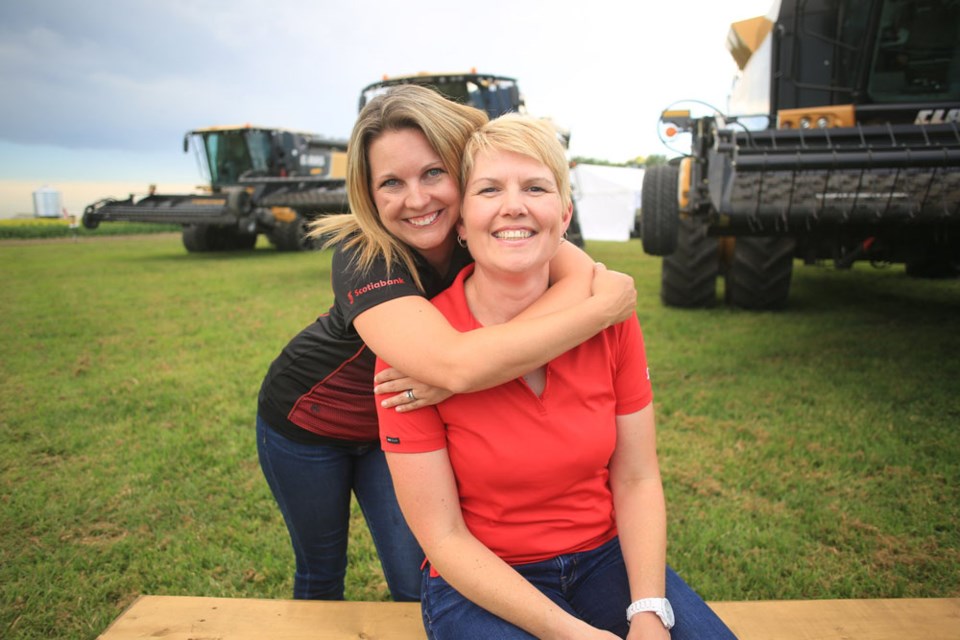A province-wide organization, Sask Women in Ag, has local roots.
Gronlid’s Kim Keller founded Women in Ag [WIA] with Ginelle Pidwerbesky and in 2014 they released a calendar.
Since then, the team has grown and their activities have expanded but the mission is the same:
“We’re here to empower, support and connect all women across agriculture and support the agriculture industry as a whole as well,” said Keller, who works on the family farm.
In the community
WIA showcased women in agriculture in the province with the 2014 calendar. More recently, they’re interacting with, coaching and connecting with women in the industry.
“Our very first event was at Ag in Motion. We had a networking event,” Keller said. “We were connecting women that otherwise probably wouldn’t have ever met, or they wouldn’t have talked.”
2017 is shaping up to be a busy one for WIA, with events likely at Farm Progress Show, Ag in Motion and Agribition.
WIA will be setting up shop in Tisdale as well. Cherilyn Nagel will be at a Farm & Food Care Speaker Training on Feb. 27.
On the farm
Keller and Pidwerbesky started up WIA during a time of change.
“We saw that agriculture was changing and women were becoming more and more present,” said Keller.
“I think there’s a perception of what a man’s role in agriculture is and what a woman’s role in agriculture is. But I think that’s very quickly changing.”
This change is happening in women’s mindsets, said Keller.
“I think it’s women just realizing that they can, for example, be a farmer, and that with all the technology that farmers have at their fingertips, it’s not about being the biggest and strongest person and being able to fix everything, it’s really about being able to run a good business.”
Adrienne Ivey, who grew up outside of Tisdale and is now a rancher with her husband in Ituna, agrees that women are responsible for change.
“We need to get out of our own way sometimes and make sure that we’re acting for exactly what we want, whether it’s the same pay as a man in the same position as us or the same treatment from our crop suppliers or whatever it may be,” said Ivey.
“I think that the more we step up and ask for what we want and demand to be treated as equals, and just expect it - when it’s not even a demand - …I think it’s amazing how much people around us actually step up.”
Rancher vs. farm wife
Ivey runs a blog, viewfromtheranchporch.com, where she refers to herself both as a rancher and as a farm wife.
“I think defining my role on a ranch has been one of the greatest of my internal struggles,” she said.
But her perception of her role clarified when she compared herself on the ranch to her husband as a parent.
“He’s still a parent, even though he’s not the primary one, and I feel it’s the same way on our farm. I may not be the primary farmer or the primary rancher, but I’m still a rancher.”
Ivey studied agriculture and worked in corporate ag before deciding to work on the ranch full-time. She saw some sexism in the corporate ag world.
“It was definitely accepted to be a woman in agriculture, but you definitely had to still prove yourself and be prepared to outwork the guys around you,” said Ivey. “I think where it would have been different is if I was trying to break into the upper level, the executive level of agriculture, that’s where I think the bigger barriers are.”
Keller is optimistic that networking through WIA is positively affecting women in the industry.
“I think for such a long time, there’s been that community for men. It’s just starting now to form that community for women. And it also helps build up our confidence in the industry and realizing that we belong in those rooms and at those tables and really, we belong in this industry.”




